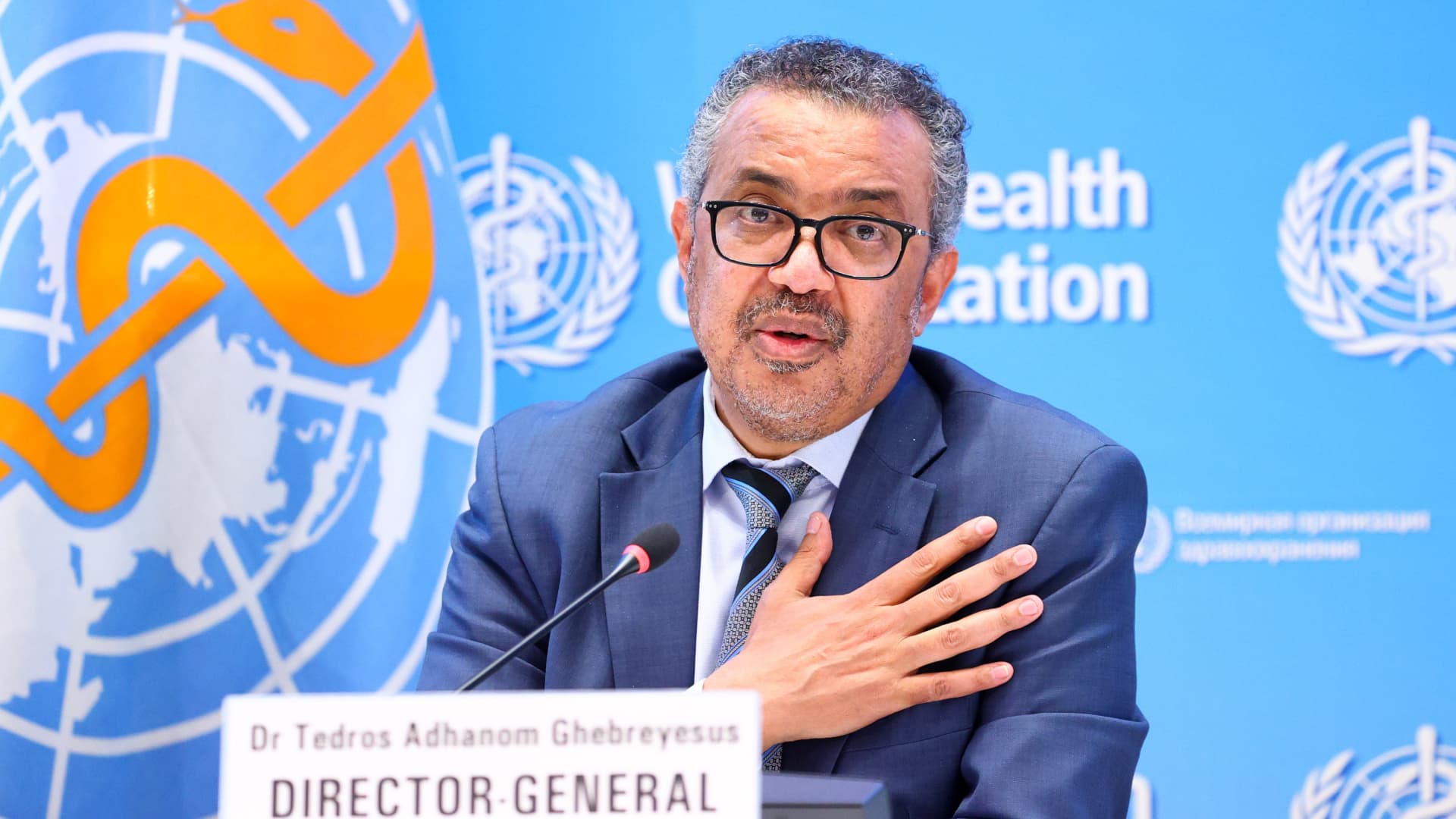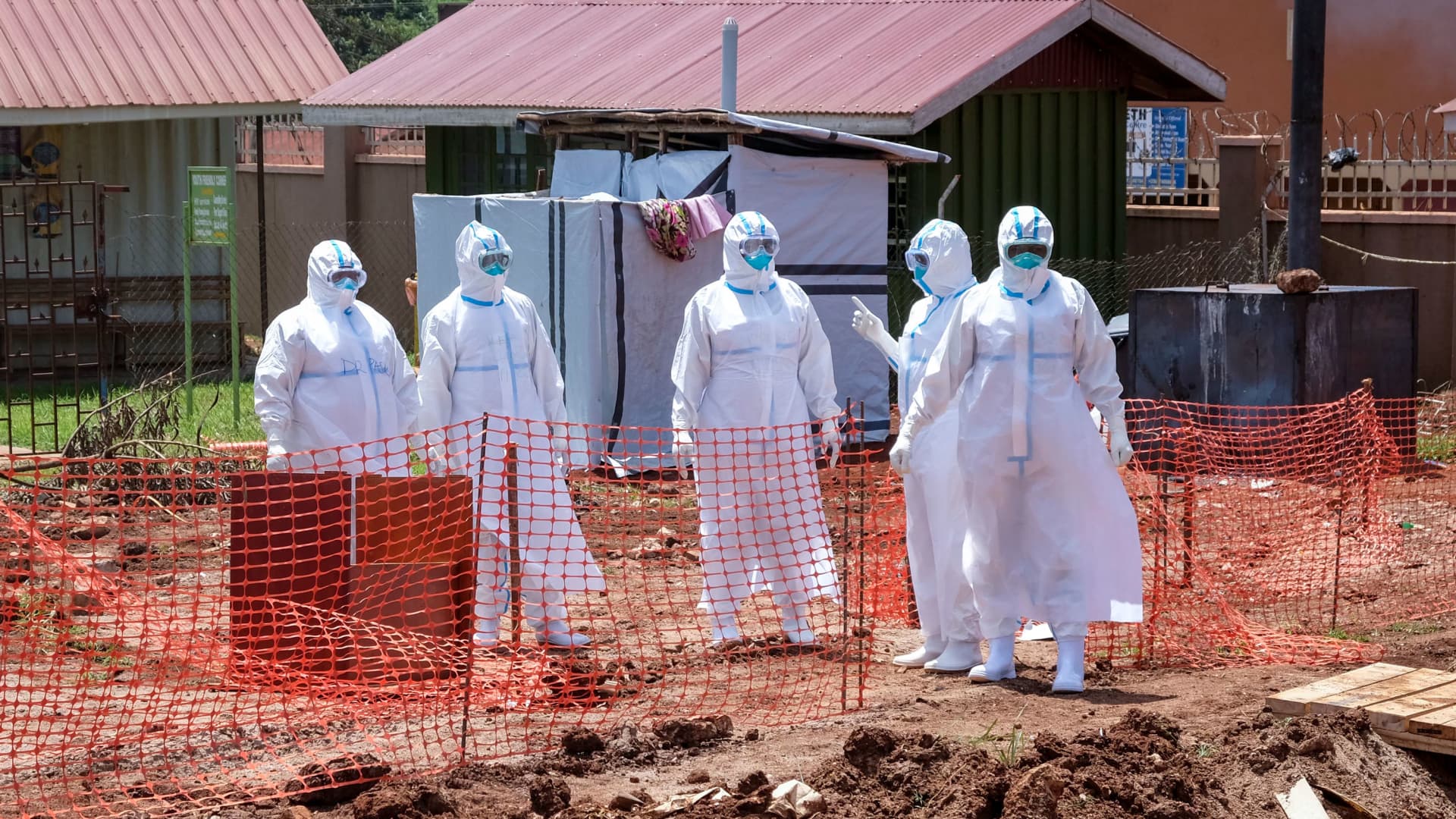WHO says Covid still a global public health emergency even as deaths fall to lowest level in two years
"It's always easier to declare a pandemic than undeclare one," said Didier Houssin, chair of the internal committee that advises WHO on health emergencies.

Tedros Adhanom Ghebreyesus, Director-General of the World Health Organization (WHO), speaks during a news conference in Geneva, Switzerland, December 20, 2021.
Denis Balibouse | Reuters
The World Health Organization on Wednesday said Covid-19 remains a global public health emergency despite the fact that deaths from the virus have fallen to their lowest level since the early days of the pandemic.
The world recorded more than 22,000 deaths from Covid during the week ended April 10, the lowest level since March 30, 2020, according to WHO data. The organization first declared Covid a global health emergency on Jan. 30, 2020, just over a month after the virus emerged in Wuhan, China.
WHO Director-General Tedros Adhanom Ghebreyesus said declining Covid deaths is good news, but some countries are still experiencing a spike in cases. Tedros said a WHO committee this week unanimously agreed that Covid remains a public health emergency.
"Far from being the time to drop our guard, this is the moment to work even harder to save lives," Tedros said during a press briefing in Geneva. "Specifically, this means investing so that Covid-19 tools are equitably distributed, and we simultaneously strengthen health systems."
The WHO has called for world leaders to ensure all nations vaccinate 70% of their populations against Covid by the middle of the year. However, 75 countries have vaccinated less than 40% of their populations and 21 nations have vaccinated less than 10% of their people as of March, according to the group.
Every region is reporting declining cases and deaths, according to the WHO's latest epidemiological update. The world recorded 7.3 million new infections for the week ended April 10, a 24% decrease from the previous week and the lowest level since late December when the highly contagious omicron variant was sweeping the world.
However, the even more contagious omicron BA.2 subvariant has fueled renewed outbreaks in Europe and China, and increasingly, in the U.S. While Europe has largely emerged from its BA.2 wave, China is fighting its worst outbreak since 2020. China has placed most of Shanghai, involving about 25 million people, under lockdown.
The U.S. reported more than 30,000 new infections on Monday, a 20% increase over the previous week, according to data from the Centers for Disease Control and Prevention. However, infections and hospitalizations are still more than 90% below the peak of the winter omicron wave in the U.S.
"It's always easier to declare a pandemic than undeclare one," said Dr. Didier Houssin, chairman of the WHO's international health regulations emergency committee. The committee makes recommendations about whether the transmission of a virus constitutes a global emergency.
Houssin said the committee is working on criteria, including epidemiological data and the level of international assistance to contain the virus, to determine when the WHO can declare that the global health emergency is over.

 AbJimroe
AbJimroe 































